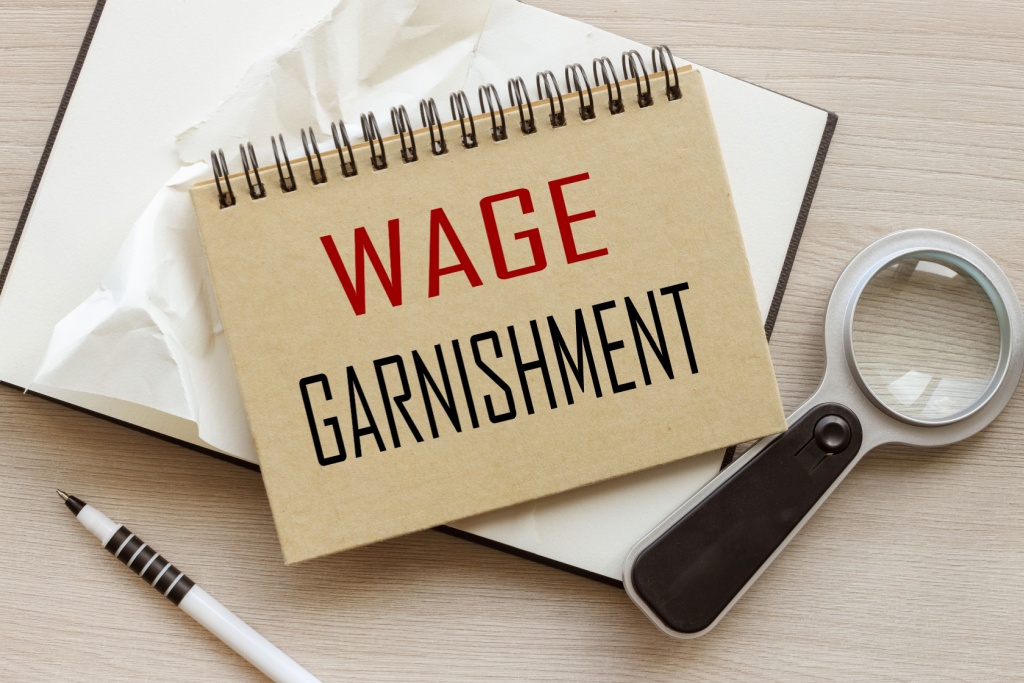Wage garnishments are legal actions initiated by creditors or government bodies to recover individual debts. When a wage garnishment is enacted, a specified percentage of a person’s earnings is withheld directly from their paycheck and sent to the creditor. This process continues until the total amount owed is fully paid.
Receiving a wage garnishment notice can be a tipping point for those facing significant debt. Unlike the option to ignore persistent phone calls from collection agencies or disregard collection letters in the mail, a wage garnishment directly impacts income and, consequently, your capacity to manage daily expenses.

What To Know About Wage Garnishment
Various creditors, including credit card firms, student loan companies, and government bodies collecting unpaid taxes, can initiate wage garnishments. Generally, creditors must first obtain a court judgment against the debtor before garnishing wages. This process requires filing a lawsuit, where the creditor must present adequate evidence to establish that the debt is valid. Once a judgment is secured, the court will authorize the creditor to garnishee a specific portion of the debtor’s wages directly from their paycheck. However, some creditors, like the Internal Revenue Service (IRS) for federal tax debts or child support agencies, can garnish wages without a court order. These organizations can directly withhold money from a person’s earnings to meet their outstanding debts.
Wage Garnishment Laws in Georgia
In Georgia, wage garnishment rules differ depending on the type of debt involved. For consumer credit debts, such as credit card balances and medical bills, specific federal guidelines limit how much a creditor can collect from a person’s wages after a judgment has been issued against them.
Under federal law, the amount a judgment creditor can take from a person’s paycheck is restricted to the lesser of two calculations:
- 25% of net earnings
- The amount by which disposable earnings exceed 30 times the federal minimum wage
Stopping Wage Garnishment in Georgia
One of the most effective ways to stop wage garnishment in Georgia is by filing for bankruptcy. This legal process not only provides relief from outstanding debts but also includes protections against creditor actions, such as wage garnishment. However, to initiate this process, consider working with an experienced Georgia bankruptcy attorney who can guide you through the complexities of bankruptcy law.
Automatic Stay
When you file for bankruptcy, an automatic stay takes effect immediately. This is a court-issued legal order that prevents creditors from engaging in any collection actions against you and your property, including stopping wage garnishment. The automatic stay offers a temporary reprieve from financial pressures, giving you time to reorganize your finances without the fear of losing part of your paycheck.
Chapter 7 Bankruptcy
This form of bankruptcy is designed to help individuals eliminate certain types of unsecured debts, such as medical bills, credit card balances, and personal loans. In Chapter 7, a trustee may liquidate non-exempt assets to pay creditors. However, many individuals retain their essential assets. By wiping out these debts, Chapter 7 helps you regain financial stability and prevents creditors from garnishing your wages.
Chapter 13 Bankruptcy
Unlike Chapter 7, Chapter 13 bankruptcy allows individuals to reorganize their debts rather than eliminate them completely. In this process, you propose a repayment plan that usually lasts between three to five years. This plan outlines how you intend to pay off your debts while keeping your assets. During this time, wage garnishments are halted, and you are given a structured way to manage your financial obligations without losing your income. By the end of the repayment period, remaining eligible debts may be discharged, providing you with a fresh start.
Contact Duncan & Brow Today To Learn More About Stopping Wage Garnishments
If you are currently at risk of having your wages garnished and want to know more about how bankruptcy may be able to help, contact Duncan & Brow today to schedule a consultation.


